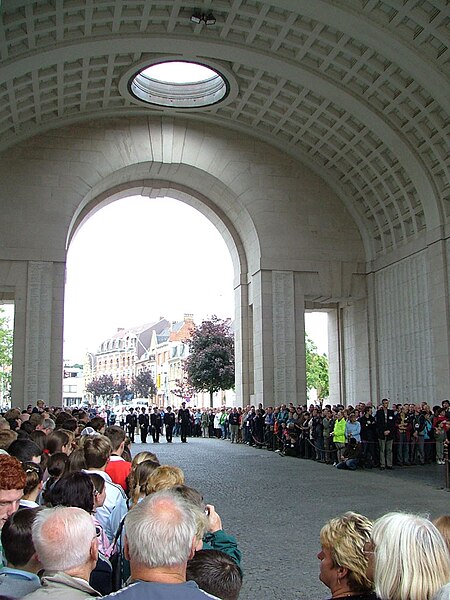When I was at school, this was a day to remember all those who lost their lives in war. Whichever flag they happened to fight under. When did this change?
This should be a day when nations come together to remember what happens and what can happen again. To remember that war does not solve problems, but only creates them - every schoolchild who studies history will be able to tell you that World War One and how the Versailles settlement handled the fate of Germany was a major factor in Hitler's rise to power.
To remember not only those who willingly go into battle - whose courage and selflessness I am not sure I could match - but those whose lives are stolen and destroyed and utterly overturned by war, as casualties, witnesses and refugees. Of the people, families and cultures who are never fully whole and bear the scars in some form for generations.
Above all, this should be a time to regret that war continues to this day. That almost one hundred years after a war so terrible and so pointless that it was termed 'the war to end all wars', there are still many people enduring conflict and all its attendent horrors - disease, hunger, displacement and despair - across the world. That many, including children, are forced to wield weapons against their will.
I feel that somehow the November 11 festivities - yes, there is an annual Festival of Remembrance, which I find an entirely contradictory phrase, complete with military displays and processions and lots of jingoistic music - is being turned into a celebration of the UK's military history and might. I'm not the only one, and was very struck by this Guardian article by Harry Leslie Smith. I would like to see an approach that honours the bravery and sacrifice of military servicemen and women - but which also questions the decisions that sent those men and women into battle. I don't think that pomp and circumstance is appropriate. I particularly want to remember that every death for which the British armed services are responsible is just as much a tragedy as every British life lost. Each one is someone's child. Just because they happen to be German or Argentinian or Afghani should not mean that we do not honour and mourn them equally.
On Passing The New Menin Gate, by Siegfried Sassoon (1927)
Who will remember, passing through this Gate,
the unheroic dead who fed the guns?
Who shall absolve the foulness of their fate,-
Those doomed, conscripted, unvictorious ones?
Crudely renewed, the Salient holds its own.
Paid are its dim defenders by this pomp;
Paid, with a pile of peace-complacent stone,
The armies who endured that sullen swamp.
Here was the world's worst wound. And here with pride
'Their name liveth for ever', the Gateway claims.
Was ever an immolation so belied
as these intolerably nameless names?
Well might the Dead who struggled in the slime
Rise and deride this sepulchre of crime.
Pictures from Wikipedia



No comments:
Post a Comment